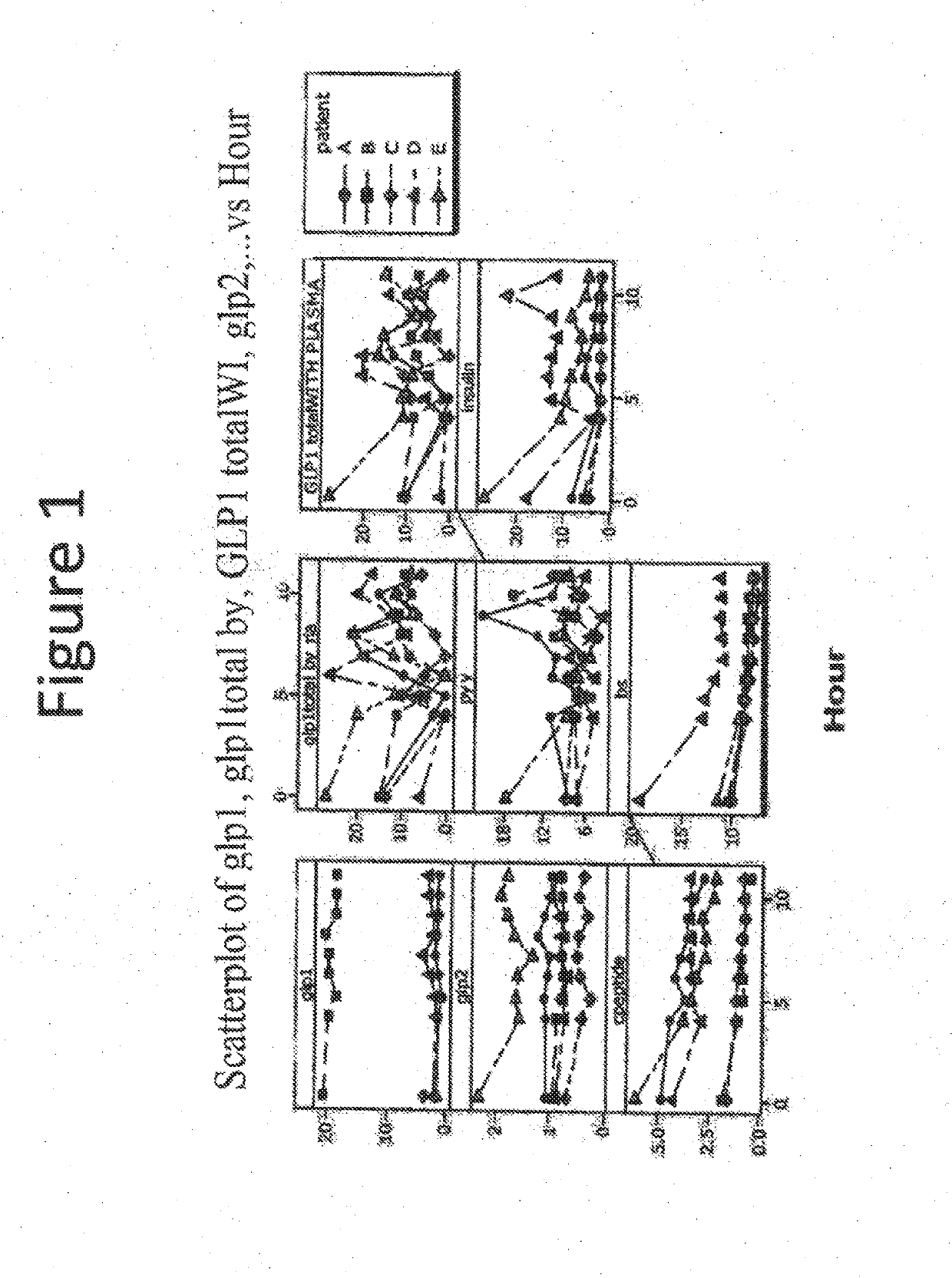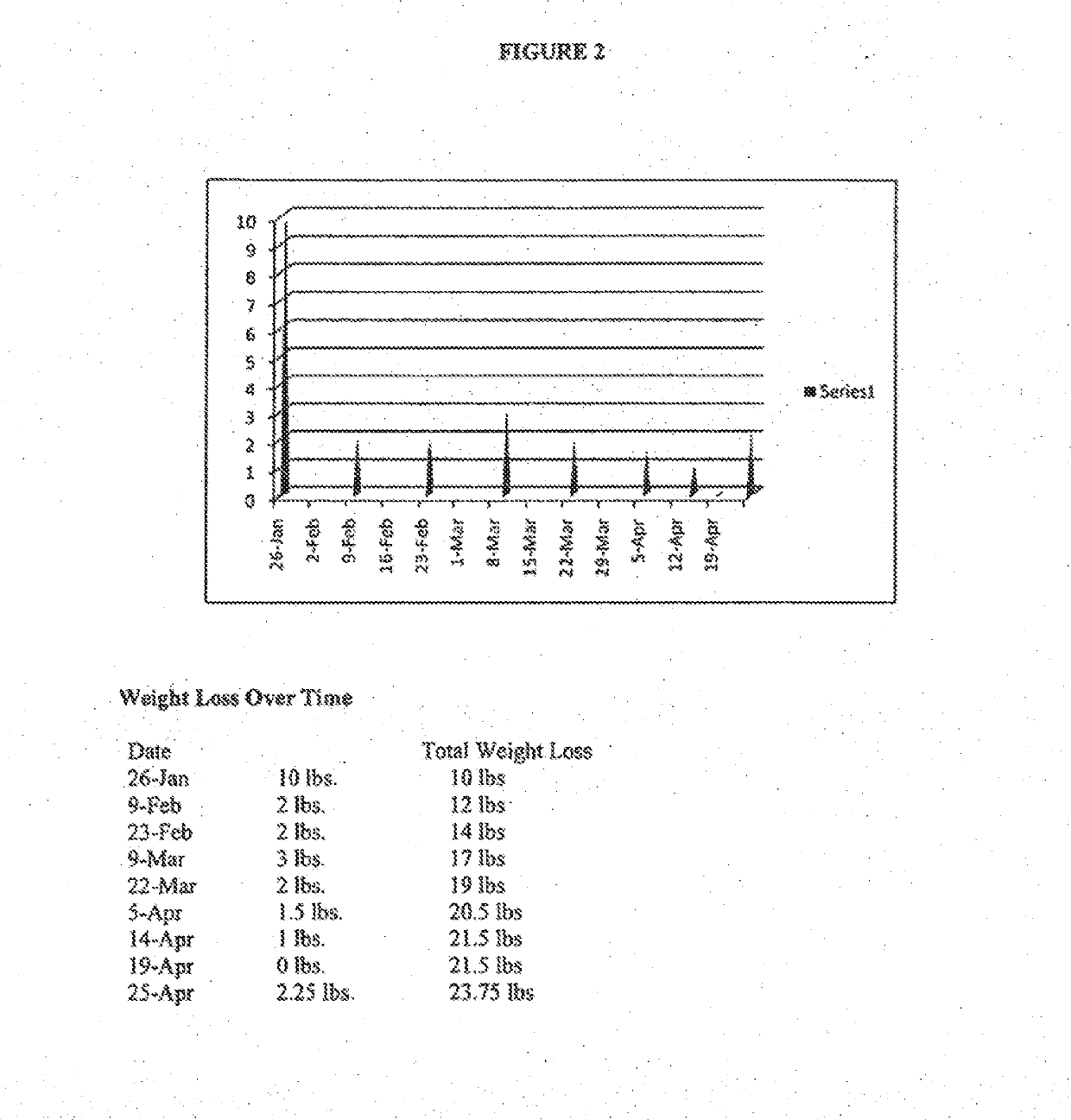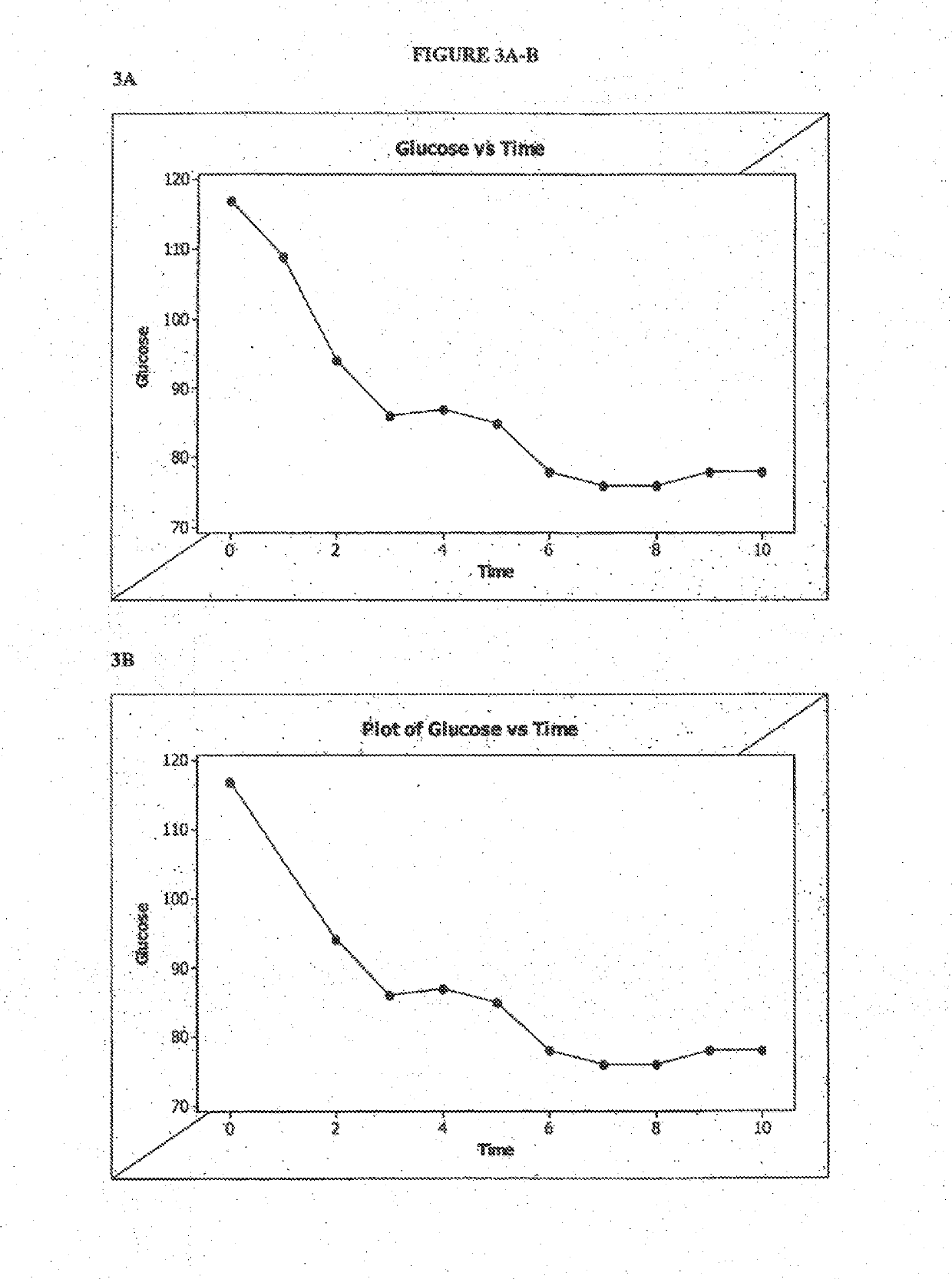Oral formulations mimetic of roux-en-y gastric bypass actions on the ileal brake; compositions, methods of treatment, diagnostics and systems for treatment of metabolic syndrome manifestations including insulin resistance, fatty liver disease, hyperlipidemia, and type 2 diabetes
a technology of gastric bypass and ileal brake, which is applied in the direction of human health protection, peptide/protein ingredients, algae medical ingredients, etc., can solve the problems of calorie restriction alone can produce weight loss, marked decline in insulin and insulin resistance, and associated weight loss more rapidly, so as to reduce the risk of recurrence, reduce the stress on the pancreas, and reduce the effect of insulin
- Summary
- Abstract
- Description
- Claims
- Application Information
AI Technical Summary
Benefits of technology
Problems solved by technology
Method used
Image
Examples
example 1
Healthy Human Volunteer Study
Formulation 1
[0274]600 mg / capsule glucose
[0275]1000 mg capsule
[0276]10% Eudragit coating
[0277]Plasticizer (propylene glycol, triethyl acetate and water)
[0279]Silicon Dioxide
[0280]A single formulation as described for formulation 1 above was-administered to five healthy adult human volunteers fasting in the morning at bedtime. Each of the volunteers was in the fasted state (i.e., none had eaten within two hours of the formulation administration). Blood levels (ng / ml) of GLP-1, GLP-2, C-peptide, GLP-1 (total) (determined by radioimmunoassay (RIA)), PYY, blood glucose (BS), GLP-1 (total) (with plasma), and insulin for each of the volunteers were measured just prior to administration of the above formulation and every four hours after administration until the eleventh hour after administration of the formulation.
[0281]Based on the data obtained for the live individuals tested as above, it was concluded that for all subjects except for...
example 2
Obese Subject Study
[0286]FIG. 2 illustrates four-month weight loss and blood glucose levels of a subject who took a single capsule according to formulation 1 once-daily in the fasted state at bedtime (about six to about nine hours prior to the subject's next intended meal) for a period of about four months. As illustrated in FIG. 2; the subject achieved a significant decrease in weight (about 24 pounds) at the end of about four months. The subject's blood glucose levels also improved significantly over the course of formulation 1 administration. Over the course of the four month period, the subject experienced periods of decreased appetite that lasted as long as 12 hours or longer, and enjoyed a substantial overall caloric intake reduction. By the end of the four month period, the subject would no longer be diagnosed as obese and had blood glucose levels that were well within acceptable ranges.
example 3
[0287]Formulation II
AmountRangeBlend:Alfalfa Leaf3.001-10+Chlorella Algae3.001-10+Chlorophyllin3.001-10+Barley Grass Juice Concentrate3.001-10+Dextrose1429.00500-3000+Other Tablet Ingredients:Coating *388.40125-750+ Corn Starch NF80.0025-160+Hypromellose USP32.4010-65+ Stearic Acid NF (Vegetable Grade)19.506.5-35+ Triacetin FCC / USP19.306.5-40+ Magnesium Stearate NF / FCC7.002.5-15+ Silicon Dioxide FCC2.500.75-5.0+ * Depending upon the composition used, 10% by weight Aqueous Nutrateric Enteric Coating (from Colorcon, Inc., Aphoeline-0) in the examples) as described below (for formulation III), 10% by weight Aqueous Shellac (Mantrose Haeuser, Inc. Aphoeline-1), 8% by weight Aqueous Indian Shellac (Aphoeline-2) was used to coat the formulations.
[0288]Formulation II was provided by mixing the actives with corn starch, stearic acid, magnesium stearate and silicon dioxide and pressing into a tablet, and coating the tablet, with shellac (either 10% or 8% shellac), triacetin and the hypromell...
PUM
| Property | Measurement | Unit |
|---|---|---|
| Fraction | aaaaa | aaaaa |
| Fraction | aaaaa | aaaaa |
| Fraction | aaaaa | aaaaa |
Abstract
Description
Claims
Application Information
 Login to View More
Login to View More - R&D
- Intellectual Property
- Life Sciences
- Materials
- Tech Scout
- Unparalleled Data Quality
- Higher Quality Content
- 60% Fewer Hallucinations
Browse by: Latest US Patents, China's latest patents, Technical Efficacy Thesaurus, Application Domain, Technology Topic, Popular Technical Reports.
© 2025 PatSnap. All rights reserved.Legal|Privacy policy|Modern Slavery Act Transparency Statement|Sitemap|About US| Contact US: help@patsnap.com



